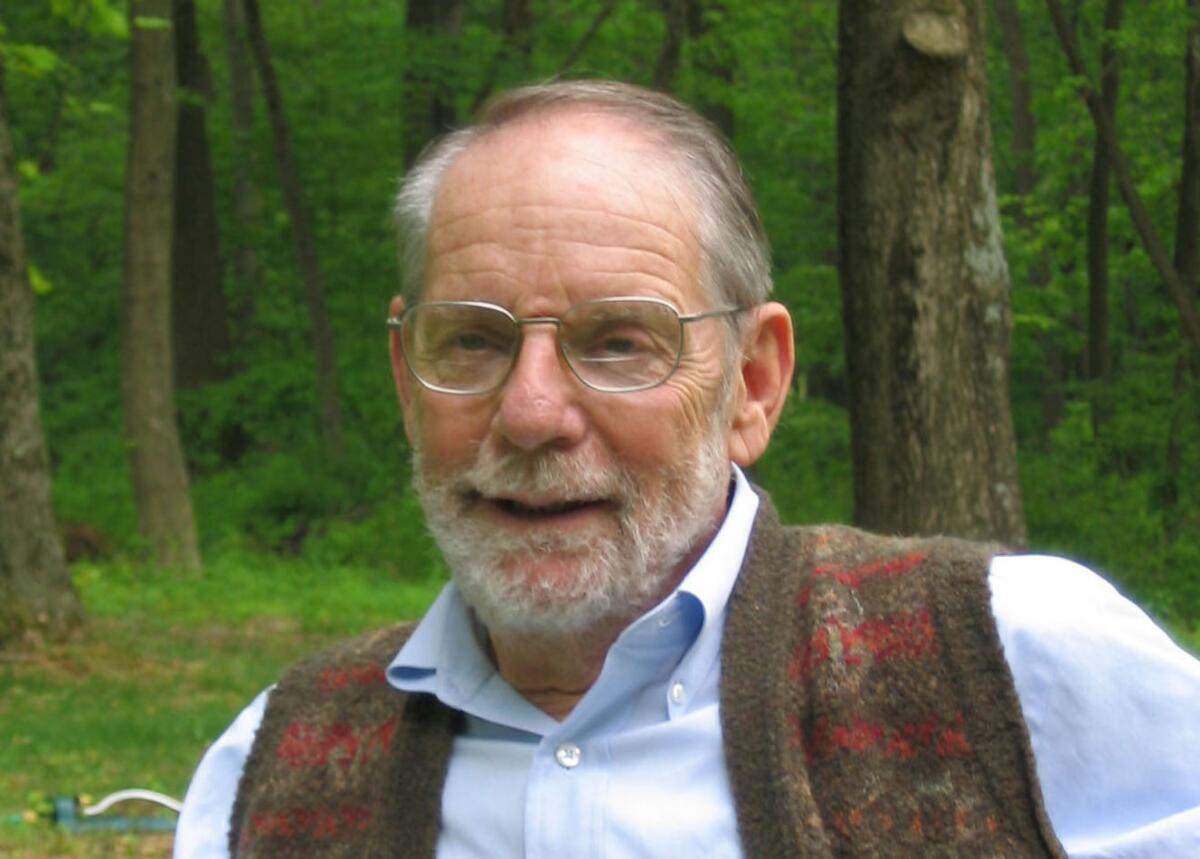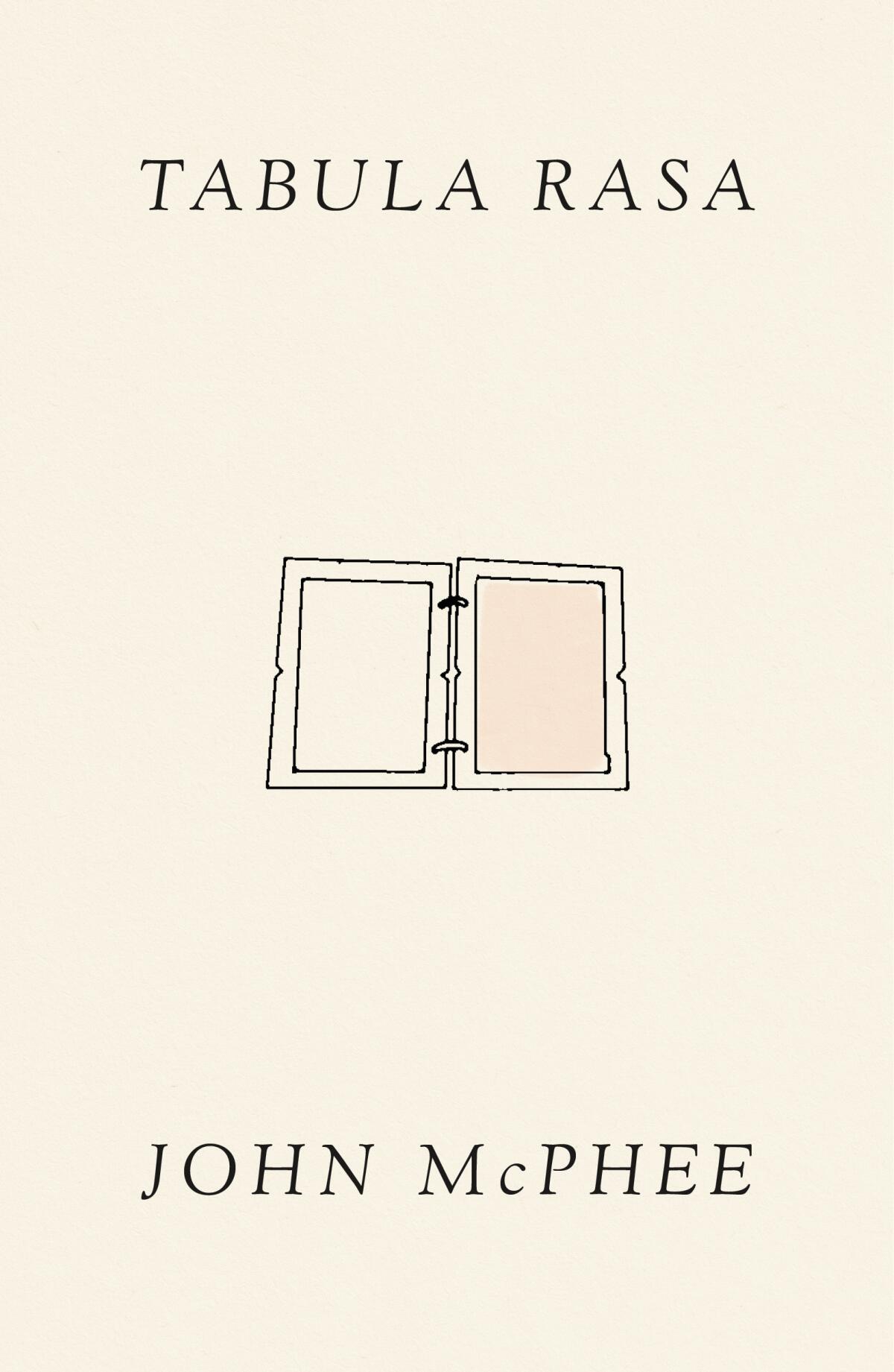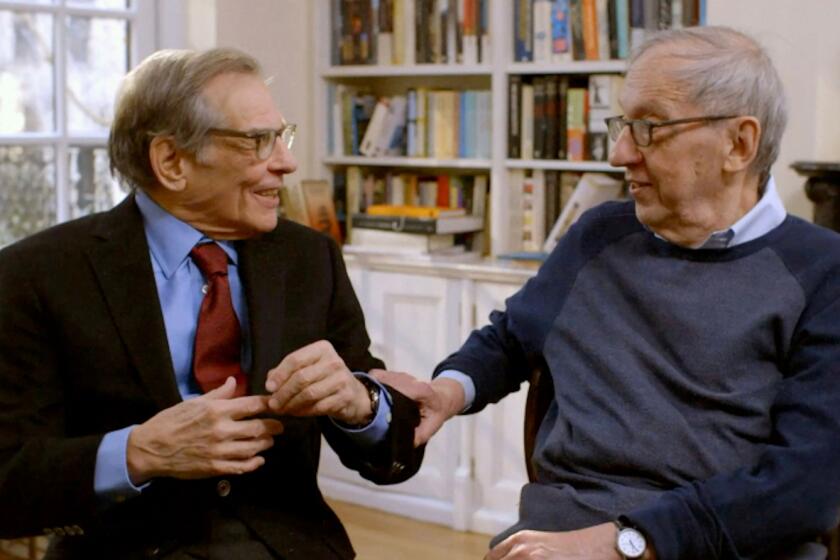John McPhee calls his new book an âold-people project.â Consider the alternative

On the Shelf
Tabula Rasa: Volume 1
By John McPhee
FSG: 192 pages, $28
If you buy books linked on our site, The Times may earn a commission from Bookshop.org, whose fees support independent bookstores.
John McPhee, who turned 92 in March, would like to keep at it for a while â the writing, and the breathing. In his lively new collection, âTabula Rasa,â the very longtime, very long-form journalist writes of âold-people projects,â the kinds of things we feel compelled to do when the end is a lot closer than the beginning. His favorite example is Mark Twainâs autobiography, which the âAdventures of Huckleberry Finnâ author dictated when he was in his 70s. Such projects, McPhee writes, give us purpose. âOld-people projects keep old people old,â he writes. âYouâre no longer old when youâre dead. If Mark Twain had stayed with it, he would be alive today.â
âTabula Rasaâ is a delightful old-people project. These are sketches, anecdotes and ideas for stories and books that McPhee, a staff writer at the New Yorker since 1965, never got around to writing. You wonât find the raw materials for his magisterial 1999 Pulitzer-winning geology deep-dive âAnnals of the Former World,â or âThe Pine Barrens,â his 1968 jaunt through the famous New Jersey ecoregion. Working largely under storied New Yorker editor William Shawn, McPhee took full advantage of the magazineâs epic story parameters, writing at great length but with literary precision about his passions and obsessions.
âTabula Rasaâ offers more modest treats. Like memories of the time McPhee could have sworn he sat across a table from Hemingway in a bar in Spain, and his friendship with the novelist Peter Benchley (âJawsâ), who grew rich enough to retire but didnât, because writers write. McPhee describes the joys of beelining â essentially road-tripping the shortest possible distance from one point to another. He writes about the maddening, sponsor-driven uptick in TV timeouts that disrupt sporting events at every opportunity.
In âTurn Every Page: The Adventures of Robert Caro and Robert Gottlieb,â filmmaker Lizzie Gottlieb illuminates the decades-long collaboration between the LBJ biographer and his editor, her father.
McPhee remains a passionate fan of basketball and lacrosse, though his severe glaucoma keeps him from watching as he once did, and from teaching his hugely influential journalism courses at Princeton University (though he has not retired from the faculty, remaining active in the administration).

It is telling that McPheeâs random exercise in notebook-emptying proves a more pleasant read than most writersâ fully formed projects. That pleasure, as it turns out, isnât all ours. In writing âTabula Rasa,â McPhee, a legend of what is now often called creative nonfiction, found a replenishment of another quality that can lead to a long life: fun.
âDoing these pieces is fun, and writing isnât fun, or it didnât used to be,â he says by phone from his lifelong hometown of Princeton, N.J. âFor 50 years, it wasnât fun. Youâre usually on edge about it, and you doubt yourself. If you didnât, you wouldnât be able to edit your own pieces, you wouldnât be able to evaluate what youâre doing.
âThe nervous anxiety over how somethingâs going every day, it goes with the territory and I think itâs important,â he continues. âBut it isnât true with these pieces. Theyâre very short. You get into one and out the other side before you know what happened. Itâs just been a very pleasant and utter contrast to the grousy curmudgeon who was there before.â
Before the theory of plate tectonics--that is to say, before about 1968--those of us who went to college with underdeveloped right brains frequently fulfilled the university science requirement by suffering through two semesters of geology, a subject we incorrectly imagined might prove more comprehensible than physics or chemistry or statistics.
McPheeâs sentiment brings to mind an old quip attributed to Dorothy Parker: âI hate writing, I love having written.â By contrast, it has always been a gleeful experience to read McPhee, whether the topic is geology, which he makes exciting even to the science-averse layman, or Bill Bradley, the former Princeton basketball star and U.S. senator whom McPhee profiled for the New Yorker in 1965 â and who remains a dear friend.
McPhee is one of the all-time great generalists, a writer who can go to town on just about any subject, so long as the passion and interest move him. âYou say to yourself, âThatâs really interesting,ââ he explains. âWell, then I want to turn around and tell you about it. And that was true of me when I was a little kid. I would go home and report things to my older brother and sister, and I wanted them to be interested in what the hell I had to say.â
But he never had much use for make-believe. When it comes to storytelling, he has always been like Joe Friday on âDragnet.â Just the facts, though rendered in minute, poetic detail. âIâm interested in passing along what I find fascinating.â
McPhee is already hard at work on a second volume of âTabula Rasaâ (Latin for âclean slateâ). âI now have about 25,000 words of stuff that nobodyâs seen yet,â he says. âIn other words, Iâm still at it. And I have a contract that calls for Volume 2, Volume 3, and Volume 4. The idea is I never die, see.â
In recent years, the writer John McPhee has stepped away from lucidly detailing complex structures like rocks and lacrosse plays, and has instead taken himself â and his 55 years working for the New Yorker â as his subject.
McPheeâs approach is a moving twist on the idea of writerly immortality. We tend to think itâs the endurance of the work that allows the greats â Shakespeare, Toni Morrison, Cormac McCarthy â to live forever. For McPhee, itâs the creation of the work that keeps him pushing through another year, another book (32 and counting), another sentence.
The idea is he never dies, see. So far, itâs worked out for him â and for us.
Vognar is a freelance writer based in Houston.
More to Read
Sign up for our Book Club newsletter
Get the latest news, events and more from the Los Angeles Times Book Club, and help us get L.A. reading and talking.
You may occasionally receive promotional content from the Los Angeles Times.







